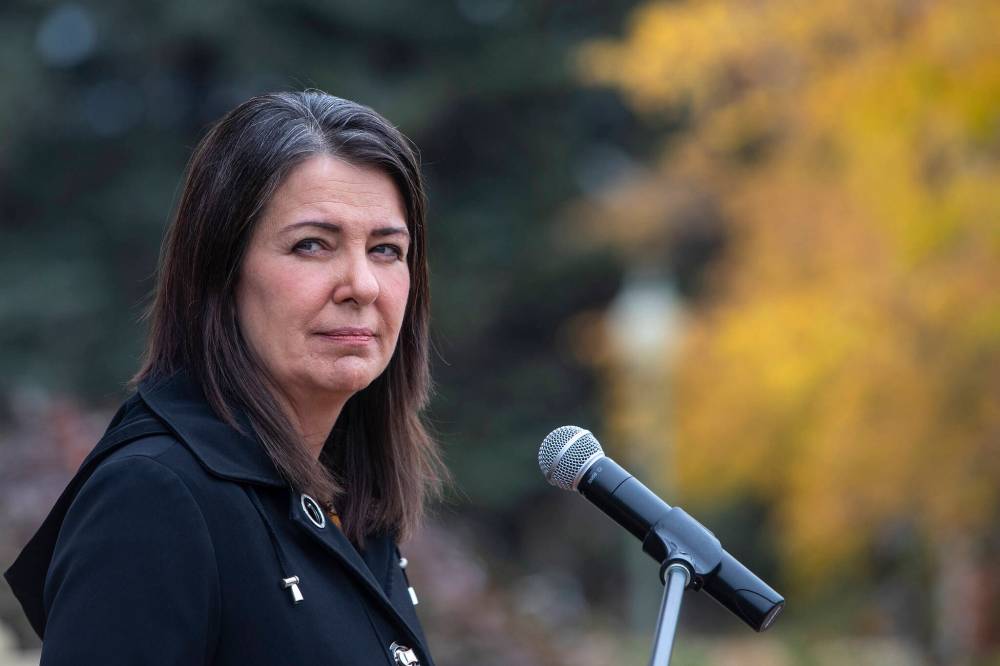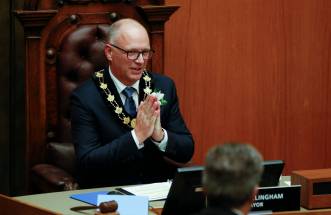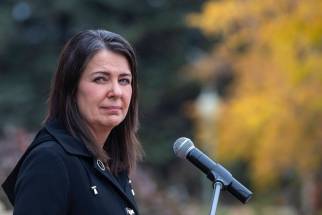Power grab concealed within populist legislation
Read this article for free:
or
Already have an account? Log in here »
To continue reading, please subscribe:
Monthly Digital Subscription
$0 for the first 4 weeks*
- Enjoy unlimited reading on winnipegfreepress.com
- Read the E-Edition, our digital replica newspaper
- Access News Break, our award-winning app
- Play interactive puzzles
*No charge for 4 weeks then price increases to the regular rate of $19.00 plus GST every four weeks. Offer available to new and qualified returning subscribers only. Cancel any time.
Monthly Digital Subscription
$4.75/week*
- Enjoy unlimited reading on winnipegfreepress.com
- Read the E-Edition, our digital replica newspaper
- Access News Break, our award-winning app
- Play interactive puzzles
*Billed as $19 plus GST every four weeks. Cancel any time.
To continue reading, please subscribe:
Add Free Press access to your Brandon Sun subscription for only an additional
$1 for the first 4 weeks*
*Your next subscription payment will increase by $1.00 and you will be charged $16.99 plus GST for four weeks. After four weeks, your payment will increase to $23.99 plus GST every four weeks.
Read unlimited articles for free today:
or
Already have an account? Log in here »
Hey there, time traveller!
This article was published 30/11/2022 (1103 days ago), so information in it may no longer be current.
Many observers and analysts of Canadian politics predicted newly minted Alberta Premier Danielle Smith’s promise to introduce an Alberta Sovereignty Act would in the end be more bluff and bluster than actual policy-making practicality.
As it turns out, they could hardly have been more wrong.
Speculation was that Ms. Smith’s pledged pursuit of legislation allowing her province to override and/or ignore federal legislation it deems harmful to Alberta’s interests was mostly a tactic to garner sufficient support from the United Conservative Party’s fringe element(s) to carry her to victory in its leadership race.
Upon winning the leadership and assuming the role of premier, the thinking was, Ms. Smith would moderate her position and present a pared-down version of the bill that would be more palatable to the majority of Albertans as that province heads toward an election in 2023.
With Tuesday’s unveiling of the ironically titled Alberta Sovereignty within a United Canada Act, Ms. Smith signalled in no uncertain terms that she intends to make conflict with Ottawa the centrepiece of her party’s re-election bid next year.
Rather than muting the intent of her sovereignty bill as a means of expanding the UCP’s appeal, she has chosen instead to dive deeper into the grievance politics that has sunk its deepest roots into resistance to COVID-19 mitigation measures such as vaccine mandates and face-mask requirements in public places.
Such minority-view disenchantments have been given very loud public voice in the form of “convoy” protests in Ottawa and several provincial cities and border outposts, but they did not and do not represent the views of the majority — across Canada generally, or in Alberta specifically.
Nevertheless, Ms. Smith has forged ahead with legislation that seeks not only to soothe the broken hearts of the disaffected fringe by directly confronting the “enemy” in Ottawa for perceived infringements into Alberta’s business, but also gives her government unprecedented power to alter the province’s laws without following established legislative processes.
JASON FRANSON / THE CANADIAN PRESS FILES Alberta Premier Danielle Smith
“We need the power to re-set the relationship with Ottawa,” Ms. Smith said on Tuesday. “We’ve tried different things in the past and it hasn’t worked. So we’ve got to try something new.”
Federal/provincial tensions notwithstanding, one is left to wonder why Ms. Smith’s sovereignty act includes a provision that allows the provincial cabinet to alter laws behind closed doors, by order-in-council, rather than through the normal process of readings, amendments and votes in the legislative chamber.
It’s an intra-provincial power grab that has nothing to do with Albertans’ deeply rooted disenchantment with federal-provincial relations, which has more traditionally been linked to energy-sector concerns.
It’s also a measure that clearly does not sit well with members of Ms. Smith’s own caucus. Several of her rivals were critical of the proposed act during the party’s leadership campaign, with one openly declaring it would render the UCP “unelectable” when Albertans go to the polls next year.
Former Alberta premier Jason Kenney — regarded by many as the trailblazer for that province’s current strain of grievance politics — so vehemently opposed his successor’s divisive tactics that he resigned his seat in the legislature immediately upon the sovereignty act’s unveiling. (He had earlier referred to the act as “a cockamamie idea that was first floated by a far-right special interest group.”)
What lies ahead for Alberta, and its dealings with the federal government, in the wake of Ms. Smith’s audacious act introduction isn’t completely clear. But it won’t be peaceful, and 2023 certainly seems poised to become a booming-business year for constitutional lawyers in both Edmonton and Ottawa.
History
Updated on Thursday, December 1, 2022 9:15 AM CST: Removes superfluous word


















